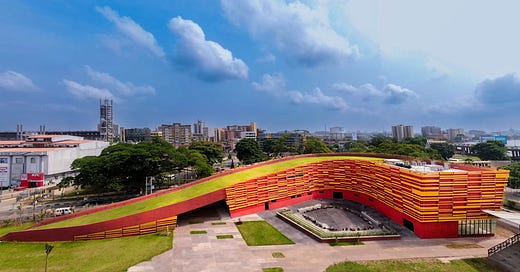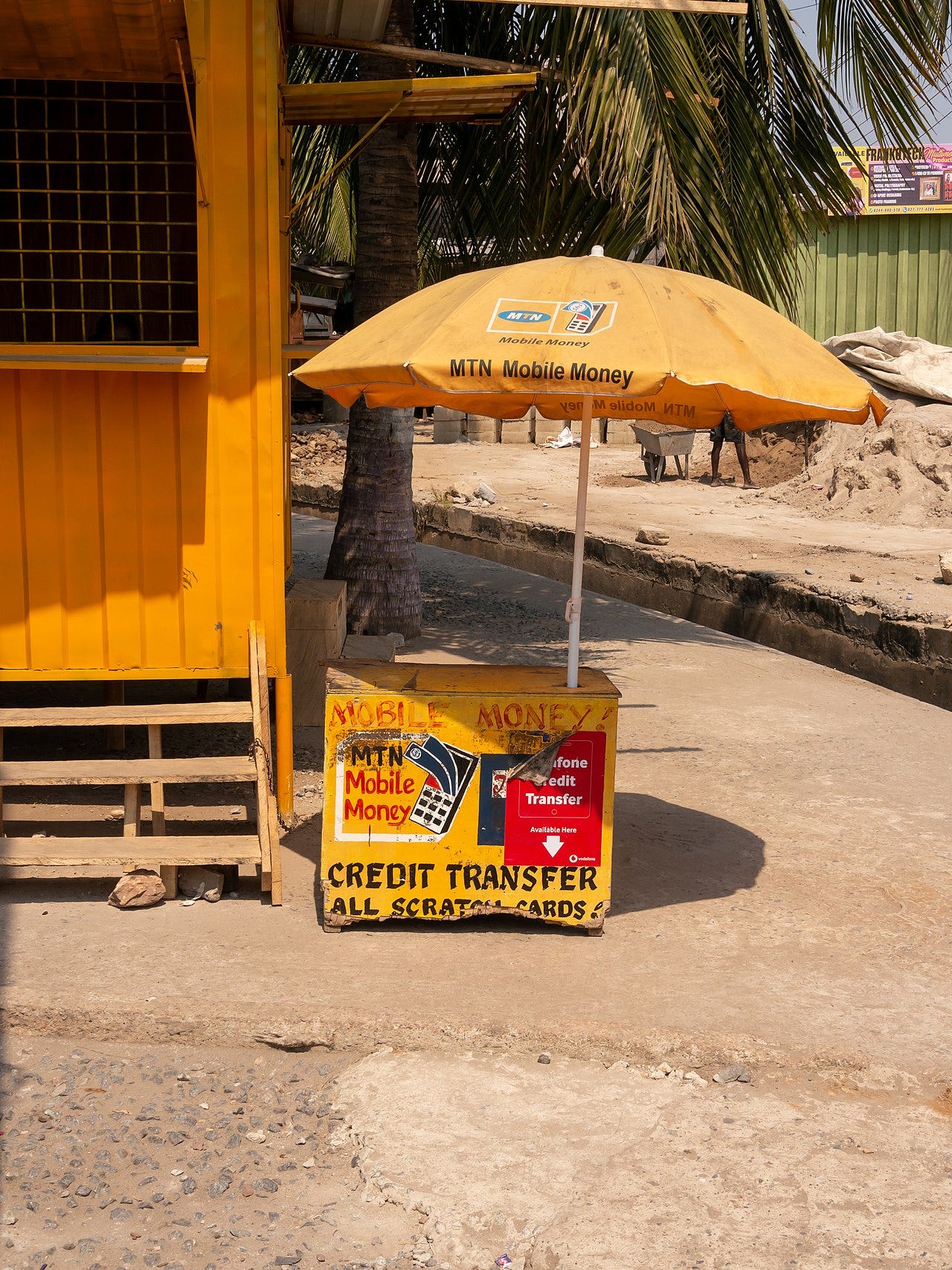Photo of the Day
Market Mondays
🔴 Johannesburg SE: 76,428.33 (-0.60%)
🟢 Nigerian SE: 99,587.25 (+33.18%)
🟢 Nairobi SE: 104.64 (+13.60%)
🟢 Ghana SE: 3,650.41 (+16.62%)
🟢 US S&P 500: 5,127.79 (+8.12%)
🟢 Shanghai Composite: 3,104.82 (+4.81%)
Mali and Kenya Get a Lifeline From the IMF: The financial body has swooped in with $120 million for Mali's food insecurity woes, while Kenya expects $1 billion next month. Kenya’s annual inflation cooled to 5% in April, its lowest level since 2020.
Zimbabwe plans to import 1.4 million tons of maize after drought conditions affected its output.
Coca-Cola is preparing to take its African bottling business public, aiming for a valuation of over $8 billion. It expects to list both in Johannesburg and Amsterdam, because why settle for one stock exchange when you can have two
Nigeria scored $600m for a seaport upgrade from A.P. Moller-Maersk, a Danish Shipping Giant. President Tinubu and Moller-Maersk’s Chairman sealed the deal at the World Economic Forum, proving that networking pays off.
Fitch revised Nigeria's outlook to positive, citing President Tinubu's economic reform efforts. His checklist so far? Slashed subsidies and a devalued currency, amongst others.
Uganda signed a $295 million loan deal with Saudi Arabia's Islamic Development Bank for road construction and other projects.
*Data accurate as of the close of markets across the continent
Spotlight Stories
Lagos Unveils a Museum That's Loud, Proud, and Unapologetically Yoruba

The John Randle Centre for Yoruba Culture and History is set to open its doors to the public this autumn, and it's anything but your typical, stuffy museum experience.
Located in the cultural heart of Lagos, the centre is a celebration of Yoruba heritage, complete with colourful displays, lively soundscapes, and even a swimming pool (more on that later). As lead architect Seun Oduwole puts it, this museum is "unapologetically Yoruba," eschewing the dark, dreary African sections often found in the basements of Western museums.
Curator and academic Will Rea adds, "It is very different to a European museum, you walk in a soundscape and it's noisy, it's performative, you have to move your body the whole time." In other words, this isn't your grandparents' museum – unless your grandparents are fans of interactive exhibits and Afrobeat music.
The centre's exterior is a nod to traditional Yoruba settlements, with earth-colorued pigments and gold lattice showcasing the craftsmanship of the Yoruba people. Inside, visitors are greeted by an audio-visual display animating Yoruba creation myths, alongside rooms dedicated to various deities, saints, and cultural practices.
But wait, what's this about a swimming pool?

The site has a rich history dating back to the 1920s, when Sierra Leone-born doctor John Randle built a public pool to prevent young Lagosians from drowning in the nearby lagoon. The pool became a popular attraction, especially since the British-run members-only club nearby excluded locals. Now, a new pool is opening alongside the museum, giving visitors a chance to take a dip once again.
The centre also boasts restaurants serving contemporary Yoruba cuisine, a library, seminar rooms, and even a costume worn by the legendary musician Fela Kuti.
As interest in Yoruba heritage surges among young Nigerians, the John Randle Centre is poised to become a major cultural destination. It's a bold, unapologetic celebration of a rich and vibrant culture that has influenced the world in countless ways – from dance to music to cuisine.
Migrants Face High Fees in Sending Money Home, Especially in Africa
Sending money across borders can be a costly affair, particularly for those in Africa, as migrants like Jerry Lukendo Mbokani know all too well. When sending around $100 to his elderly mother in the Democratic Republic of Congo, Mbokani has to navigate a complex web of fees that can eat up to 10% of the total amount.
The UN Sustainable Development Goals aim to reduce remittance fees to less than 3% by 2030, but the world is far from reaching this target. The global average stands at 6.2%, with sub-Saharan Africa bearing the brunt of high fees at an average of 7.4%. In some cases, fees can even climb into double digits.
Inconsistent regulations and limited competition are among the main culprits behind these high costs.
For example, payment companies can't use a single license across multiple African countries, leading to complicated compliance and regulation processes that drive up costs.
These high fees are particularly damaging to female migrants, who typically earn lower incomes and send smaller, more frequent remittances for essential expenses like healthcare and education.
US Points Finger at Rwanda and M23 Rebels for Deadly DRC Camp Bombing
The United States has called out the Rwandan army and M23 rebel group for their alleged involvement in a tragic bombing that claimed the lives of at least nine people, including seven children, at a displacement camp in the Democratic Republic of Congo.
The attack on the Mugunga camp in the eastern city of Goma on Friday has sparked cross-accusations between the Congolese army and M23, with each pointing the finger at the other.
However, the US State Department has taken a clear stance, asserting that the strike originated from positions held by the Rwanda Defence Force (RDF) and the M23 group it allegedly supports.
The attack has sent shockwaves through the camp, where most residents had sought refuge from the ongoing violence in their hometowns and villages. President Felix Tshisekedi, who has been abroad for several weeks, was set to return to the central African nation this weekend in the wake of the tragedy.
Both rebel and government troops have faced accusations of abuses against civilians in recent months as they battle for control of the region. The latest strike comes on the heels of M23 fighters claiming to have seized the town of Rubaya, an area rich in coltan, a mineral crucial for the production of mobile phones and electric vehicle batteries.
Food for Thought
“Do not follow a person who is running away."
— Kenyan Proverb






